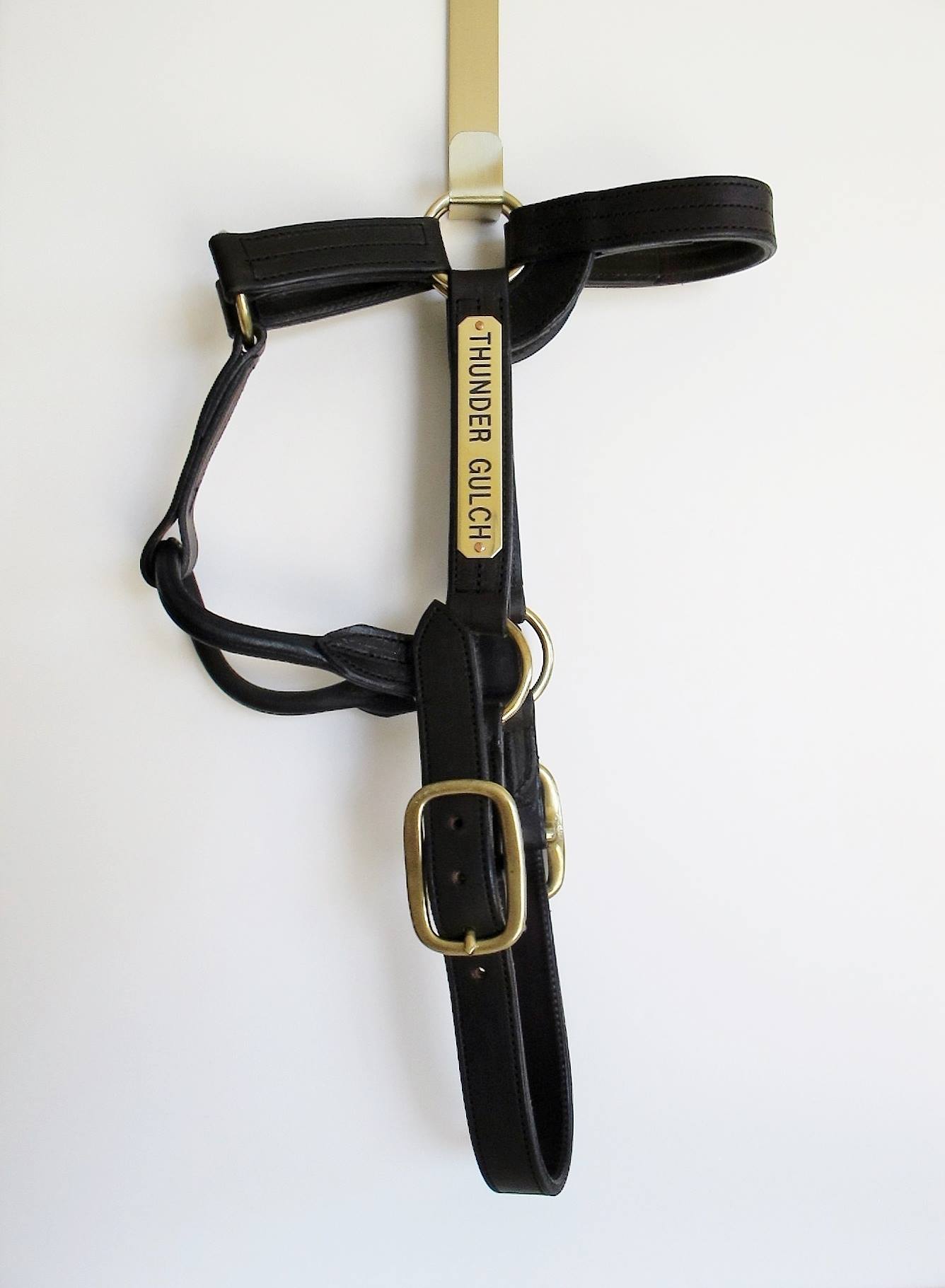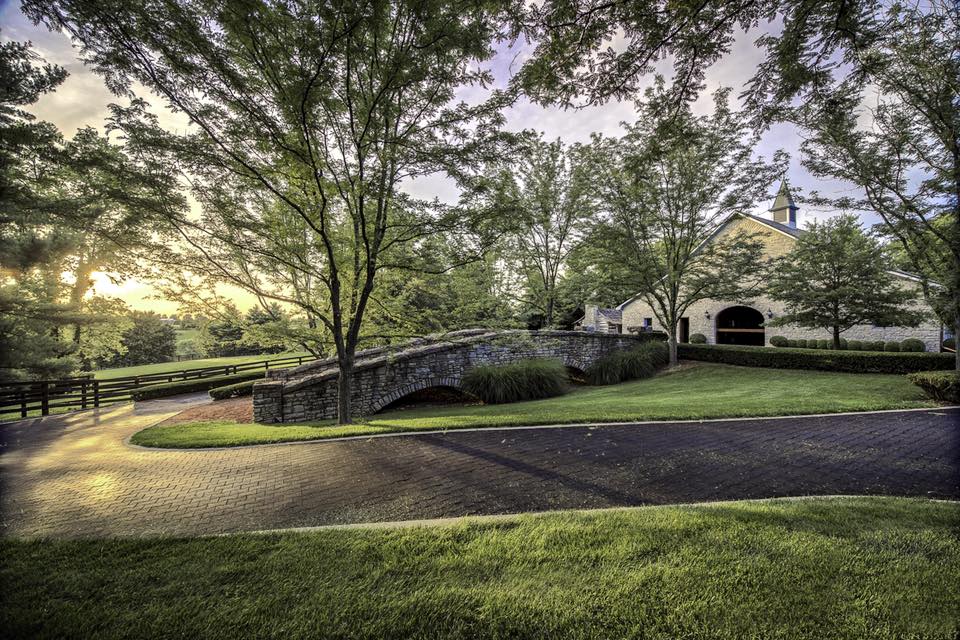By Liane Crossly
Special to NKyTribune
Life is different now for American Pharoah.
The 3-year-old colt, who closed his career at Keeneland on Oct. 31 as the first Thoroughbred to sweep the Triple Crown and Breeders’ Cup Classic, has a quiet routine in the stallion division of Ashford Stud in Woodford County. The lifestyle is in stark contrast to his track time as one of the most celebrated racers of all time and certainly the most photographed.
American Pharoah left Keeneland two days after his epic Breeders’ Cup Classic triumph for the 11-mile van ride to his new home along scenic Highway 60. For now, he is something of an equine couch potato with little more to do than graze in his paddock and lounge in fluffy straw bedding in his oversized stall.
His true work begins in February when his mares start arriving for brief breeding encounters. American Pharoah likely will have more than 200 partners by the time breeding season winds down in late June. Two hundred mares in four months means American Pharoah will be a busy boy just like other Ashford Stud residents which include 2000 Kentucky Derby winner Fusaichi Pegasus.
As a point of reference, Ashford Stud stallion Uncle Mo—the 2010 Eclipse Award champion and Breeders’ Cup Juvenile winner—was bred to 211 mares when he started his stallion career in 2012. Those pairing resulted in 165 foals. As two-year-olds of 2015, those offspring have been incredibly successful on the track. That means Uncle Mo not only will be busy again in 2016 but he now commands a stud fee of $75,000, up from the original price of $35,000 when he was an unproven stallion commodity.
A stallion’s advertised breeding cost is often a starting point in negotiating a deal. If he is so popular that there are limited opportunities, that price could go up. Or, mare owners might get a discount based on factors such as payment schedule or the unborn foals’ potential auction value. In a typical contract, payment is due when the mare gives birth to a healthy youngster. If the mare fails to produce a foal for whatever reason, no money changes hands.
American Pharoah’s initial charge is $200,000, a hefty sum for a first timer but reasonable for uniqueness. That amount will fluctuate depending on how the subsequent little American Pharoahs perform as racehorses in 2019. Kentucky Derby winner Smarty Jones was worth $100,000 for every live foal in his initial crop of 2006. Due to the recession’s heavy toll on the Thoroughbred industry and other factors, that six-figure sum is now $7,500.
By contrast, Tapit—ninth behind Smarty Jones in the Derby—was another pretty face with potential when he started breeding for $15,000 in 2005. He vaulted from promising to proven when his sons and daughters consistently won at the highest levels every season. As demand for Tapit’s increased, so did his stud fee which is $300,000 for next year.
American Pharoah the horse
On track, American Pharoah earned $8.65-million for the Ahmed Zayat family. He is a homegrown product resulting from a breeding to the Zayat’s 2009 Kentucky Derby runner-up Pioneerof the Nile and their Littleprincessemma, who was winless in two starts. They considered selling American Pharoah as a yearling, but opted to buy him back on a final bid of $300,000 at public auction. His value today as a stallion is well into the tens of millions.
Dollar figures aside, American Pharoah is a horse. An incredibly calm and charismatic horse unfazed by cheering crowds on race days and fans reaching to pet him at the barn. Despite being finely tuned for his farewell performance in the Breeders’ Cup Classic, his trainer Bob Baffert predicted the fit athlete would readily adapt to farm life.
“Letting him down (from his racing career) will be easy,” Baffert said before American Pharoah’s departure from Keeneland. “He’s ‘Mr. Chill.’”
With a ceremonious police escort for the short trip to Ashford Stud, American Pharoah arrived at his new home on the morning of Nov. 2. A group of media members, farm staff and others greeted him and he once again posed for pictures. Baffert, his key assistant Jimmy Barnes and groom Eduardo Luna also were on hand for what was to them a farewell.
American Pharoah likely will never again see a saddle after being ridden at least a few times a week at the track. He will gain more than 100 pounds. After spending much of his life in a stall, American Pharoah now spends several hours in a grassy pen. He transitioned to the routine thanks in part to 1995 Kentucky Derby winner Thunder Gulch who lives one paddock over. At age 23, Thunder Gulch thrives as a retiree after prolific careers as both stallion and racehorse.
An elder’s example
American Pharoah was purposely assigned to be his neighbor so that he could look to his elder for guidance. Instead of getting the notion to go for a run, he would look to the lollygagging Thunder Gulch and follow his example.
Thunder Gulch has no further agenda than to enjoy the good life but American Pharoah will have a full schedule next year. American Pharoah will be bred to three different mares each day—one each in morning, afternoon and early evening. That format will fluctuate slightly depending on various factors such as his intended mates’ heat cycles and his own aptitude for the job. Unlike other horse breeds, artificial insemination is not allowed among Thoroughbreds.
After first hearing about the equine dating system, most people can not resist making a joke or two (or more.) All kidding aside, not all horses can handle the demands but most are more than willing. A fine example is Thunder Gulch who routinely bred about 200 mares per year. And instead of taking a six-month vacation, he shipped to the Southern Hemisphere in the off-season for more action. Thunder Gulch has more than 2,000 sons and daughters.
American Pharoah’s first babies will arrive in the first days of 2017. With their genes of one of racing’s greatest performers, they are destined for success. Perhaps one will be another genetic masterpiece like their sire.
“This guy had the brilliance, the speed and the personality,” Baffert said. “He was the perfect racehorse.”
Liane Crossley is a freelance writer based in Lexington.
























I hope that whoever decides how many times a stallion is expected to go to the breeding shed that they don’t breed AP’s brains out and send him to an early grave. It’s ALWAYS about the money not the welfare of the horse. I am truly worried for American Pharoah.